AUSBILDUNG
Die wichtigste Voraussetzung für eine Ausbildung zum Bühnentänzer/in ist die Liebe zum Tanz, ebenso wie die Begeisterung dafür seine gesamte Kraft, Hingabe und Energie einzusetzen! Diese entsteht jedoch nicht von selbst, sie wird vielmehr in den Kinder- und Jugendjahren von einem Ballettlehrer / einer Ballettlehrerin geweckt und gefördert. Nur dann ist die Chance gegeben, dass sich ein Funke entzündet und eine tänzerische Laufbahn beginnt.
Wir suchen leidenschaftliche, begeisterungsfähige junge Menschen, die bereit sind für ihr Berufsziel allen Einsatz zu geben!
Registriere Dich für eine Audition mit unserem Bewerbungsformular hier.
Internationale Bewerbungen sind jederzeit, auch bei bereits angefangenem Semester/Schulhalbjahr, herzlich willkommen!
Der Unterricht findet auf englisch und auf deutsch statt.
Unsere Berufsausbildung dauert in der Regel sechs aufeinander folgende Semester mit einer abschließenden Prüfung in praktischen und theoretischen Fächern. Voraussetzung für die Teilnahme an der Abschlussprüfung sind die zwei erfolgreich bestandenen Zwischenprüfungen nach dem 1. Und 2. Schuljahr. Die Unterrichtszeiten sind in der Regel von montags bis freitags, wobei meist zwischen 15.00 – 18.00 freie Zeiten sind. Ausbildungsfreie Zeiten liegen meist etwa 8 Wochen im Sommer, 2 Wochen im Herbst, 2 Wochen zu Weihnachten und eine Woche zu Ostern. (Orientiert wird sich dabei an den Berliner Schulferien). In jedem Schuljahr finden ein bis zweimal öffentliche Vorstellungen am Theater statt. Dabei werden die erlernten fachlichen Kenntnisse in Choreographien ausgearbeitet und auf der Bühne präsentiert, was essentiell wichtig ist für die Weiterentwicklung einer professionellen künstlerischen Bühnenpersönlichkeit.
Das Mindestalter der Schüler und Schülerinnen beträgt 16 Jahre (Einverständniserklärung der/ des Erziehungsberechtigten)
eine abgeschlossene Schulausbildung (Schulbildungsreife-Zeugnis kann nach Audition eingereicht werden)
ein unbedenklicher Gesundheitszustand (Sporttauglichkeits-Attest )
tänzerische Vorbildung im Klassischen und Modernen Tanz.
WIR SUCHEN LEIDENSCHAFTLICHE, BEGEISTERUNGSFÄHIGE JUNGE MENSCHEN, DIE BEREIT SIND, FÜR IHR BERUFSZIEL ALLES ZU GEBEN.
Die Aufnahmeprüfung besteht aus der Teilnahme an einem Training im Fach Klassischer Tanz (90 Min.), einem Training im Fach Moderner Tanz (90 Min.) und der Präsentation einer Choreographie des klassischen oder modernen Repertoires. In einem persönlichen Gespräch finden wir heraus, welche theoretischen Kenntnisse im künstlerischen Bereich bei dem Schüler vorliegen.
Audition-Gebühr von 35,00 € ist nach Einladung einmalig fällig zum Termin.
Der Ausbildungsvertrag wird auf drei Schuljahre geschlossen, wobei das erste Schuljahr als „Probejahr“ gilt und nach einem Jahr mit einer Kündigungsfrist von drei Monaten zum Ende des ersten Schuljahres gekündigt werden kann.
Das Schulgeld kann bequem in monatlichen Raten gezahlt werden. Die Raten sind jeweils zum Monatsanfang, spätestens jedoch bis zum 10. des Monats fällig.
Die Ausbildung ist BAföG berechtigt: Wie hoch der Betrag des BAföG ist, hängt vom Verdienst der Eltern ab. Bitte informieren Sie sich unter: www.bafoeg-rechner.de oder www.das-neue-bafoeg.de
Kindergeld: Bis zum 25. Lebensjahr stehen den Eltern für ihre Kinder in der Ausbildung Kindergeld zu.
Krankenversicherung: Die Beiträge der Krankenkassen (privaten) werden von jedem Einzelnen getragen.
Berufsgenossenschaft: Für Unfälle in der Schule und Wegeunfälle (Unfälle auf dem direkten Weg zur Schule und zurück) sind die Ausbildungsschüler im Rahmen der gesetzlichen Unfallversicherung bei der Verwaltungsberufsgenossenschaft versichert.
Bitte legen Sie Ihrem Bewerbungsschreiben folgende Unterlagen bei:
- Lebenslauf mit Angabe bisheriger Ausbildungen
- Zeugnisse und/oder Attestate tänzerischer Ausbildung
- Kopie des Schulabschlusszeugnisses
- Ärztliches Attest
- 3 aktuelle Passbilder (erwünscht)
BEWERBUNGSFRISTEN: Die Aufnahmeprüfungen finden alljährlich im Frühjahr statt. Wir bitten um schriftliche Form der Bewerbung: >> Bewerbungsformular herunterladen
Nach Prüfung der eingegangenen Unterlagen erhaltet Ihr die Einladung zur Aufnahmeprüfung.
Einsendeschluss (es gilt der Poststempel) der Bewerbungen für einen Auditiontermin ist jeweils ein Werktag vor dem jeweiligen Prüfungstermin.
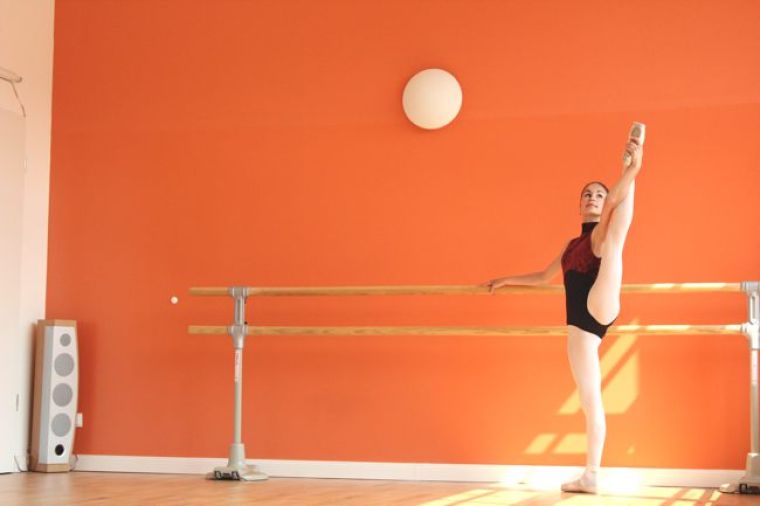
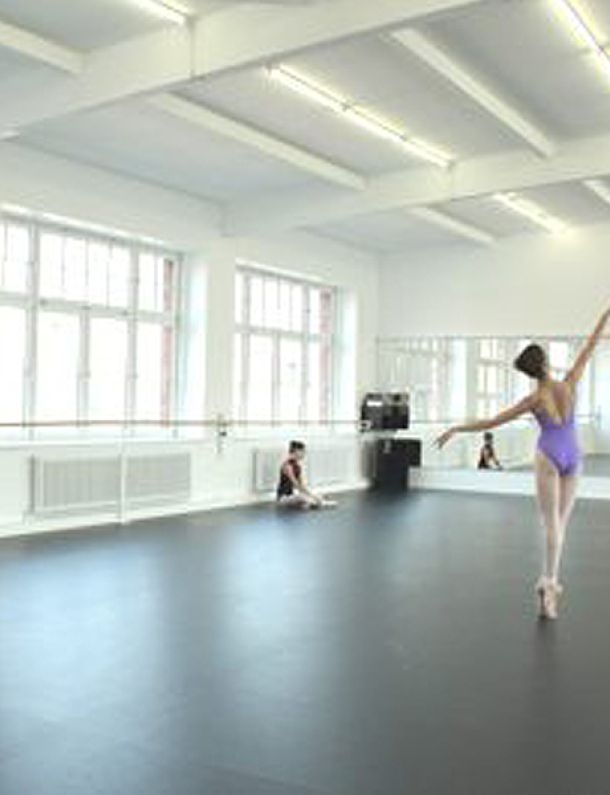
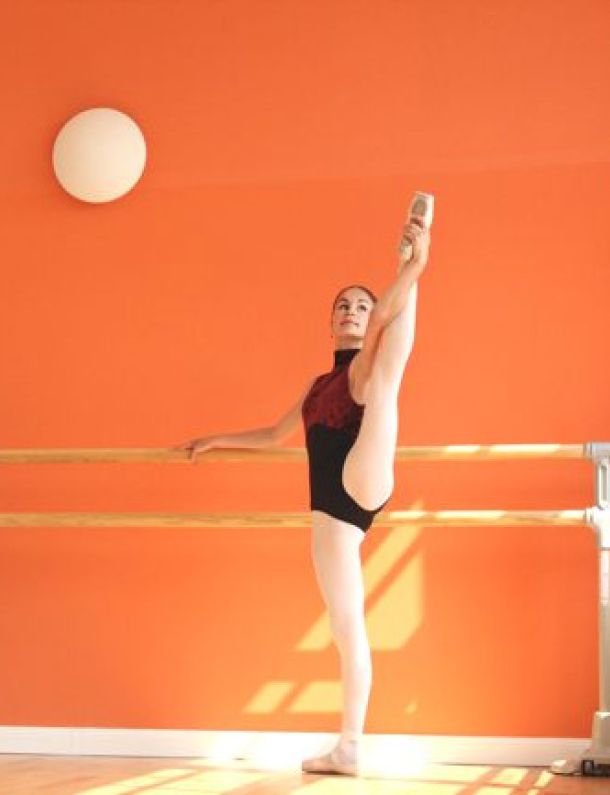
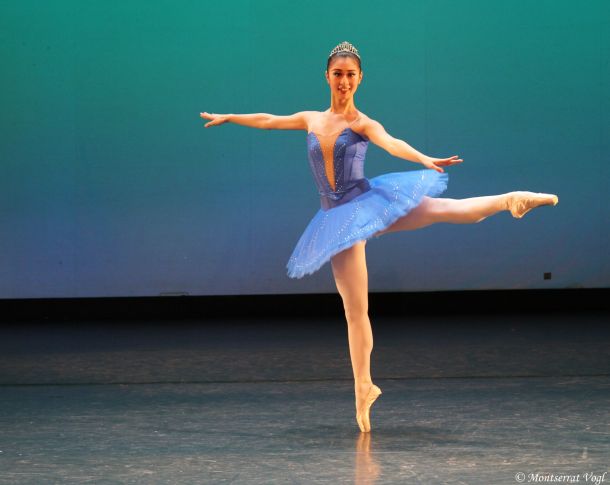
QUEREINSTIEG
Quereinstiege oder Termine ausserhalb der genannten Vortanz-Termine sind individuell vereinbar und möglich!
AUDITIONS
Unsere aktuellen Audition-Termine:
- Samstag, 29.03.2025 um 12:30 Uhr
- Samstag, 17.05.2025 um 12:30 Uhr
- Samstag, 19.07.2025 um 12:30 Uhr
Suche dir einen der oben angebotenen Audition-Termine aus und schick uns deine Unterlagen! Wir laden Dich dann persönlich ein!
Solltest Du zu keinem der genannten Termine persönlich kommen können, so sende uns eine Video-Audition!
Für jegliche Fragen zur Ausbildung, kontaktiere uns gern jederzeit HIER
BEWERBUNG SENDEN AN:
International Dance Academy Berlin – IDAB
BALLETTAKADEMIE HANS VOGL
Ausbildungsstätte für Bühnentanz
Rheinstraße 45 – 46
D-12161 Berlin
Tel.: 030 – 873 88 18
AUSBILDUNG BÜHNENTANZ
Schwerpunkt: Klassischer Tanz
In der dreijährigen Berufsausbildung zum/zur klassischen Bühnentänzer/-in liegen die Unterrichtsschwerpunkte in den Fächern klassischer Tanz und Contemporary.
Unsere Schüler*innen erlernen, vertiefen und festigen das gesamte Bewegungsvokabular und die Technik des klassischen Tanzes nach der russischen Methodik von Waganova und Eduardowa. Ebenso erlernen sie moderne Tanztechniken und zahlreiche zeitgenössische Stile und Bewegungskonzepte.
Die Erwartung an unsere Schüler ist, dass sie mit Leidenschaft und Liebe ihr Ziel professionelle(r) Bühnentänzer(in) zu werden verfolgen.
Unser Ziel ist es, neben exzellentem technischen Können, die tänzerische Persönlichkeit jedes einzelnen Schülers herauszuarbeiten und weiterzuentwickeln und ihn oder sie optimal auf ihre berufliche Laufbahn als Bühnentänzer(in) vorzubereiten.
Hans Vogl, Gründer der IDAB leitet die Berufsausbildung mit Schwerpunkt Klassischer Tanz.
Wir legen allergrößten Wert auf eine tänzerisch und pädagogisch hervorragende Ausbildung unserer Lehrkräfte, die den Schülern nicht nur Bewegungen und Tanztechniken beibringen, sondern sie mit allen Kräften unterstützen, die gesteckten Ziele mit Elan, Ausdauer und Freude zu erreichen.
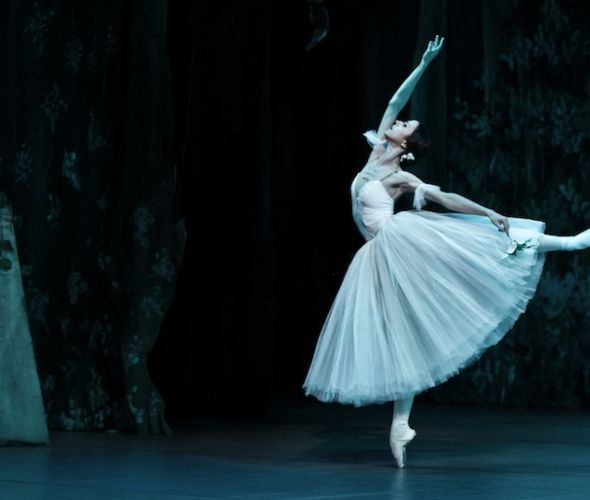
- Klassischer Tanz: 2x täglich,
- Charaktertanz/Folklore: 2x wöchentlich
- Repertoire: 2x wöchentlich
- Modern/Contemporary/Improvisation: blockweise intensiv-Kurszeiten
- Deutsch-Unterricht / Englisch
- Französisch/Fachbegriffe
- Anatomie
- Tanzgeschichte/Musik
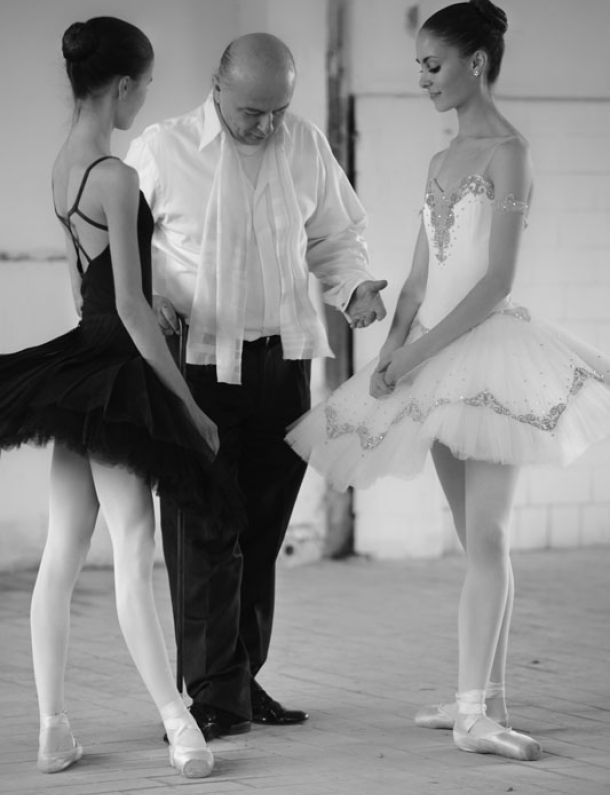
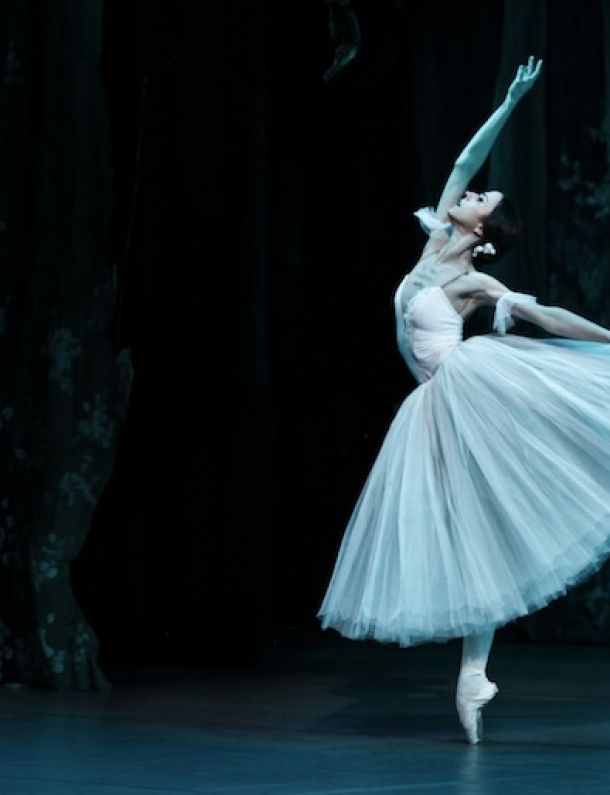
VORAUSBILDUNG
6-monatiges Intensiv-Programm
Wenn die Entscheidung für eine Vollzeitausbildung noch nicht gewachsen ist und die Ziele für die Berufswahl noch nicht 100% sicher sind, dann bieten wir das Vorausbildungs-Intensiv-Programm für Bühnentanz an.
In diesem Programm ist Vorerfahrung natürlich Voraussetzung und es werden Deine tänzerischen Fähigkeiten auf ein intensiveres Level gehoben.
Es ist dann sinnvoll die richtigen Voraussetzungen und Grundlagen dafür zu schaffen auf eine professionellere Ebene im Training zu gelangen. In der Vorausbildung liegt der Schwerpunkt im Erlernen des professionellen Trainierens.
Die Schüler erlernen und verinnerlichen eine handwerklich technische Basis, Placement, Disziplin und Improvisation. Die Musikalität wird geschult und die künstlerische Persönlichkeitsentwicklung gefördert.
Weiterhin werden Mädchen an die Spitzentanztechnik und Jungen an große Sprung- und Drehvariationen herangeführt.
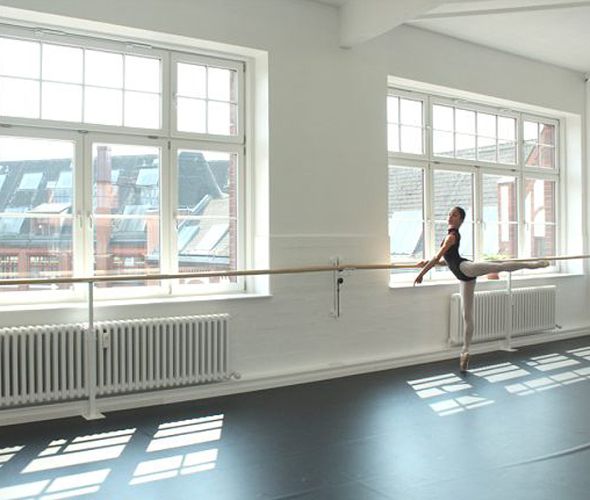

INTENSIVPROGRAMM
Unser Intensiv-Programm Vorausbildung dauert 6 Monate (meist September – Februar) und eine mehrmalige Teilnahme ist ebenfalls möglich.
Das Programm besteht aus der Teilnahme an 2 Unterrichtseinheiten (a 90 Min.) täglich (Montag-Freitag), entweder am frühen Abend oder am Vormittag.
Ein Training Klassischer Tanz und ein Training Zeitgenössischer Tanz oder Repertoire.
Eine Aufnahme ist das ganze Jahr über möglich und erfolgt über die Teilnahme bei einem Training in unserem Vor-Ausbildungs-Programm.
Das Mindestalter beträgt 13 Jahre. Körperlich sollten gute anatomische Voraussetzungen für den klassischen Tanz vorhanden sein.
Des Weiteren sind Musikalität, Selbstdisziplin, Ausdauer und Begeisterungsfähigkeit unabdingbare notwendige Eigenschaften, die mitgebracht werden sollten.
Weitere Infos unter 030 – 873 88 18